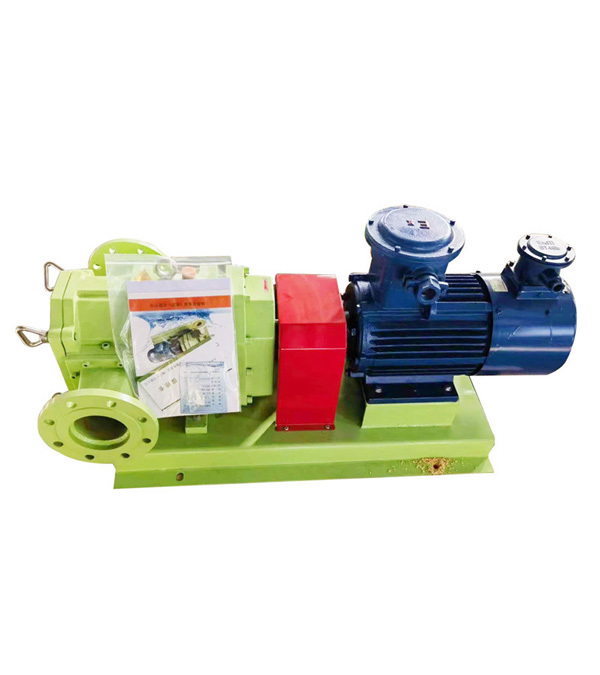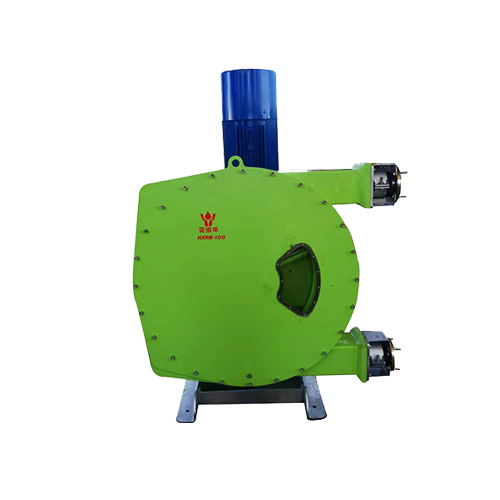Why Rubber Lobe Pumps Are Essential for Efficient Wastewater Management
Mar 18,2025

Why Rubber Lobe Pumps Are Essential for Efficient Wastewater Management
Table of Contents
- 1. Introduction to Rubber Lobe Pumps
- 2. Understanding Wastewater Management
- 3. Advantages of Rubber Lobe Pumps
- 3.1 Durability and Reliability
- 3.2 Gentle Handling of Fluids
- 3.3 Efficiency in Performance
- 3.4 Easy Maintenance
- 4. Applications in Wastewater Treatment
- 5. Environmental Benefits of Rubber Lobe Pumps
- 6. Choosing the Right Rubber Lobe Pump
- 7. Cost Considerations for Rubber Lobe Pumps
- 8. FAQs
- 9. Conclusion
1. Introduction to Rubber Lobe Pumps
Rubber lobe pumps have emerged as a key player in the field of industrial wastewater management. These pumps are specifically engineered to handle a variety of fluids, making them essential for efficient waste disposal and treatment processes. Unlike traditional pumps, rubber lobe pumps utilize a unique mechanism that allows them to provide consistent flow rates while minimizing shear, thereby protecting the integrity of the fluids being pumped. In this article, we will explore the myriad benefits and applications of rubber lobe pumps, particularly in the context of wastewater management.
2. Understanding Wastewater Management
Wastewater management is a critical component of environmental protection and public health. It encompasses the processes of collecting, treating, and disposing of wastewater generated by residential, commercial, and industrial activities. Effective wastewater management helps prevent pollution, conserves water resources, and contributes to sustainable development. As industries continue to expand, the need for reliable and efficient wastewater treatment solutions becomes even more pressing.
3. Advantages of Rubber Lobe Pumps
Rubber lobe pumps offer a range of advantages that make them particularly suitable for wastewater management applications.
3.1 Durability and Reliability
One of the standout features of rubber lobe pumps is their durability. Constructed from high-quality rubber materials, these pumps are resistant to abrasion and wear. This characteristic ensures longevity, reducing the frequency of replacements and maintenance costs. Furthermore, rubber lobe pumps can operate efficiently under varying pressures and temperatures, maintaining high performance levels in demanding environments.
3.2 Gentle Handling of Fluids
The design of rubber lobe pumps allows for gentle handling of fluids, which is crucial when dealing with sensitive materials. Traditional pumps can cause shear damage to delicate fluids, compromising their quality. In contrast, rubber lobe pumps maintain the integrity of the fluid being pumped, making them ideal for applications involving biological materials or other sensitive substances.
3.3 Efficiency in Performance
Efficiency is a hallmark of rubber lobe pumps. Their unique lobe design enables a steady and pulsation-free flow, which enhances the overall performance of wastewater treatment systems. This consistent flow reduces the risk of blockages and ensures that treatment processes function smoothly, contributing to the effectiveness of wastewater management.
3.4 Easy Maintenance
Maintaining rubber lobe pumps is straightforward, thanks to their simple design. Regular maintenance tasks can be performed with minimal effort, ensuring that the pumps remain in optimal working condition. This ease of maintenance not only saves time but also reduces operational downtime, further enhancing the efficiency of wastewater systems.
4. Applications in Wastewater Treatment
Rubber lobe pumps find applications across various stages of wastewater treatment processes. They are widely used in:
- **Preliminary Treatment:** These pumps aid in the initial screening of solids and debris from wastewater, ensuring that larger particles do not clog subsequent treatment equipment.
- **Biological Treatment:** In biological treatment phases, rubber lobe pumps gently transfer activated sludge, preventing damage to the microorganisms essential for effective treatment.
- **Chemical Addition:** These pumps can accurately dose chemicals used in wastewater treatment, ensuring that the right amounts are delivered without compromising the quality of the fluid.
5. Environmental Benefits of Rubber Lobe Pumps
The environmental benefits of using rubber lobe pumps in wastewater management are significant. By providing efficient flow rates and minimizing shear damage, these pumps contribute to more effective treatment processes. This efficiency translates into reduced energy consumption, lower operational costs, and a smaller carbon footprint. Moreover, the durability of rubber lobe pumps means fewer replacements, leading to less waste generated from discarded equipment.
6. Choosing the Right Rubber Lobe Pump
Selecting the appropriate rubber lobe pump for wastewater management involves several considerations:
- **Flow Rate Requirements:** Evaluate the specific flow rate needed for your application. Pumps are available in various sizes and capacities.
- **Fluid Characteristics:** Understand the properties of the fluids being handled, including viscosity, temperature, and chemical composition.
- **Operational Environment:** Consider the conditions in which the pump will operate, including the potential for abrasives or corrosive materials.
Consulting with manufacturers or experts in the field can provide valuable insights into selecting the most suitable pump for your needs.
7. Cost Considerations for Rubber Lobe Pumps
When evaluating the cost of rubber lobe pumps, it's essential to consider the total cost of ownership, not just the initial purchase price. Factors like maintenance costs, energy efficiency, and expected lifespan can significantly impact overall expenses. While rubber lobe pumps may have a higher upfront cost compared to traditional pumps, their durability and efficiency often result in lower long-term costs.
8. FAQs
What industries benefit from rubber lobe pumps?
Rubber lobe pumps are commonly used in wastewater treatment, food and beverage processing, chemical manufacturing, and pharmaceutical applications.
How do rubber lobe pumps differ from traditional pumps?
Unlike traditional pumps that may damage sensitive fluids, rubber lobe pumps provide gentle handling while maintaining consistent flow rates.
Are rubber lobe pumps suitable for abrasive fluids?
Yes, rubber lobe pumps are designed to handle abrasive fluids without significant wear, making them ideal for demanding applications.
What maintenance is required for rubber lobe pumps?
Regular inspection and cleaning are recommended, along with periodic checks of seals and lubricants to ensure optimal performance.
Can rubber lobe pumps handle varying fluid viscosities?
Absolutely! Rubber lobe pumps are versatile and can handle a wide range of fluid viscosities, making them highly adaptable for different applications.
9. Conclusion
Rubber lobe pumps play a vital role in the efficient management of wastewater, offering numerous advantages that enhance the overall treatment process. Their durability, efficiency, and gentle handling of fluids make them indispensable in various industrial applications. By understanding the benefits and selecting the right pump for your specific needs, industries can significantly improve their wastewater management practices while contributing to environmental sustainability. Embracing rubber lobe pumps is not just a smart choice; it is a commitment to a more efficient and eco-friendly future in wastewater treatment.
Contact Us
E-mail :
sales@yaquanpump.com
service@yaquanpump.com
Phone/WhatsApp:
+44 7301702546
+63 9452052801
Address:
Room B208, Building 2, North Hongqiao Songri Center, No.215 Gaochao Road, Jiading District, Shanghai









